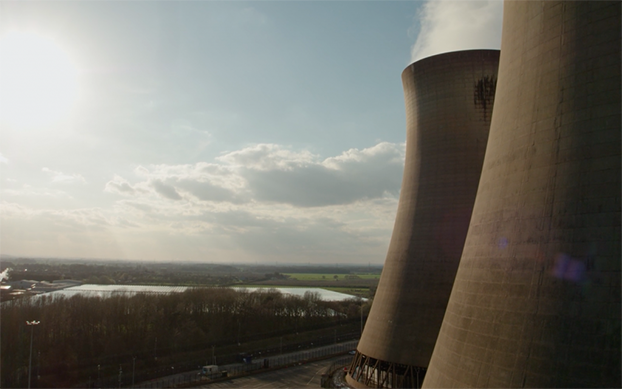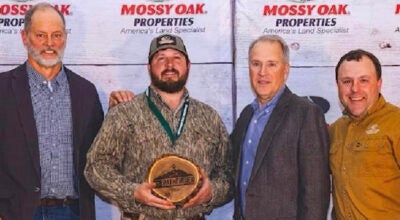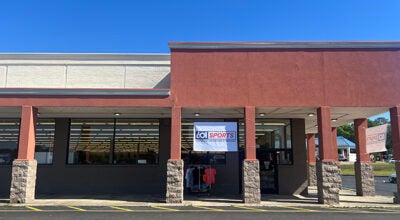Amite Bioenergy’s parent company Drax under investigation
Published 12:06 pm Wednesday, May 31, 2023

- Wood Pellets provide a way for power plants to produce power without burning coal in Europe. (Courtesy Photo | Drax)
GLOSTER — Amite Bioenergy parent company Drax is under an open investigation by the United Kingdom’s Office of Gas and Electricity Markets as announced by Ofgem Wednesday. Ofgem stated “we are investigating whether Drax Power Limited is in breach of annual profiling reporting requirements relating to the Renewables Obligations scheme and other related matters. The opening of this investigation does not imply that we have made any findings about possible non-compliance by Drax Power Limited.”
“Like all energy generators, Drax receives regular requests from Ofgem and continues to cooperate fully throughout this process,” a spokesperson with Drax said in a statement. “Last year Drax appointed a third party to independently verify the accuracy of its biomass sustainability and profiling data as part of an ongoing process. Drax is confident in the compliance of its biomass with the Renewables Obligation criteria.”
Amite Bioenergy is reportedly under investigation for emission violations according to an article published in The Guardian. Mississippi Department of Environmental Quality’s public information office said it can not comment on matters of enforcement. A public information request has been submitted to find out more details.
Mississippi Department of Environmental Quality Public Records office responded to the request in an email Wednesday morning stating they would “respond within seven business days as well as provide the responsive records within fourteen business days.”
It would not be the first time the company has been in trouble for emission violations. In 2021, Amite Pellet was fined $2.5 million for breaching air pollution rules. The plant, owned by Drax, produces wood pellets to be used in European power plants.
Wood Pellets Sustainability
Steve Williams, Mississippi Forestry Commission Area Forester for Lincoln County, said wood pellets are produced using saw dust from timber mills and any scraps not viable for other wood products in an article released in May. Drax claims wood pellets produce 80 percent less carbon dioxide emissions when combusted than coal and pellets have 11 gigajoules/m3, compared to 3 gigajoules/m3 from fresh wood or wood chips according to the International Renewable Energy Agency. Drax has not returned a phone call for comment yet.
Pellets are being produced in Brookhaven in addition to Gloster. Lincoln County’s Board of Supervisors approved tax exemptions for Rex Lumber’s pellet plant in Brookhaven on May 2. Rex Lumber has never returned phone calls or emails to talk about the pellet plant, the process of making pellets and what kind of wood is being used in making pellets. Williams said he knew the pellets are usually a mixture of pine and hardwood but only the pellet plants would know the formulas in an interview in early May.
“A lot of it comes from residual stuff. It is left over product from lumber making,” Williams said in early May.. “It helps the companies and timber owners because they get paid for the by-product. Normally, you would have disposed of the by-product someway.”
Speaking to protect trees
Dogwood Alliance, a group working to protect southern forests and communities from industrial logging, reached out to The Daily Leader in response to The Guardian story. Located in North Carolina, Dogwood Alliance states “Our forests aren’t fuel,” and believes the southern economy should not rely on “forest destruction,” in its Our Story page. Treva Greer, a spokesperson with Dogwood Alliance, said she believes the federal government should take responsibility for the “environmental injustices,” in a Dogwood Alliance press release.
“Drax and the wood pellet industry consistently fail pollution limits. State agencies across the South continually fail to stop them,” Greer said. “With President Biden’s Executive Order on Environmental Justice, it is long past time for the EPA to take responsibility for regulating these industrial wood pellet facilities. Not just in Amite County, but across the US South.”
Forestry impact on economy
The United States Department of Agriculture reports Mississippi has 19.2 million acres of forestland, 62 percent of the state, with 88.64 percent of the forests being privately owned. About half of the forest land is pine and the other half being hardwoods. Pine plantations have about a 25-year rotation whereas hardwoods take much longer to produce timber.
According to the Mississippi State University Extension Service, forestry was the third largest agricultural commodity generating $1.29 billion in revenue. Forestry and forest products in Mississippi generate an economic impact of $17.24 billion annually.





